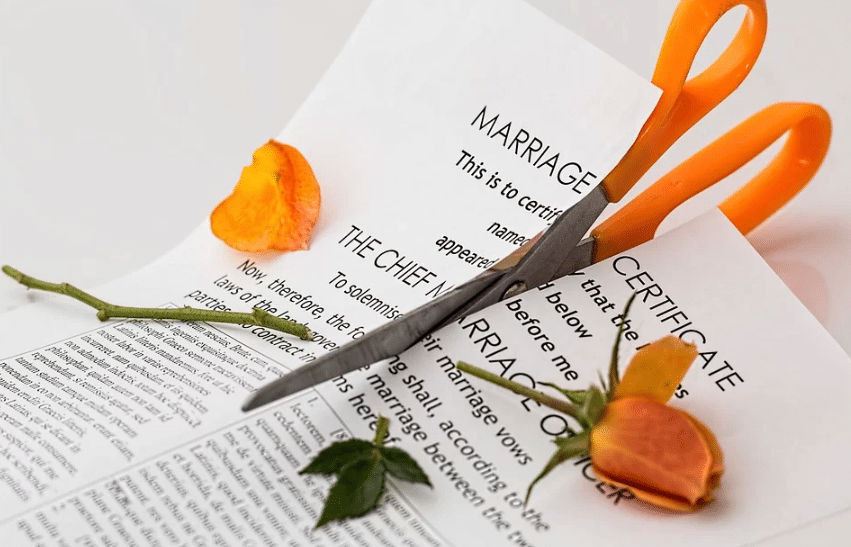People who are going through the splitting up of a household understand how expensive divorces can be. A two-income household is becoming one. Parties are expected to maintain a similar standard of living with less income than they may have had before. Alternatively, if only one parent was working, that one income has to support two households to an extent. Plus, factor in court costs, attorney’s fees and expenses of experts, and the divorce bill can grow quickly which can feel overwhelming.
Most filing fees cost several hundred dollars. Chances are, you will need to serve your spouse with the paperwork through a professional process server or the local sheriff. All of this carries a processing fee, which can run anywhere from $15 – $100+. If you hire an attorney, they can charge anywhere from $2,000 to $20,000.00, depending on the facts and circumstances of your case. Furthermore, If you and your spouse cannot get along and there are children involved, then the costs will likely increase. Parties who battle over custody may need to hire other experts, such as psychologists or custody experts. Individuals with large or complex estates might also need to hire a forensic accountant to get an accurate valuation.
Here are some things you can do to manage the costs of expensive divorces.
- Plan – If you have the luxury of time, it is prudent to set aside money for the divorce. See if you can save up for the filing fees, an initial retainer for a lawyer, and a few months of living expenses. Planning for the financial outlay in a divorce is one of the best ways to manage your costs in getting a divorce.
- Hire a lawyer – It seems counterintuitive, right? Surely it is cheaper to do it yourself. It is less expensive in the short term to go it alone. However, it would help if you considered hiring an attorney to be an investment in your future. Your attorney will ensure your paperwork is filed correctly, and that you’re asking for everything you may be entitled to. They’ll be able to draft all the appropriate documents that may be required to transfer property and guide you through the whole process. You are paying for peace of mind and a voice of reason as well as their professional expertise. Your attorney will be able to negotiate on your behalf, resulting in cooler tempers and more productive discussions.
- Be reasonable – The more cooperative you and your spouse can be throughout the process, the lower your costs will be. Any time you can resolve your differences outside of court, you are saving attorney’s fees and time. If you have hired an attorney, and you want to run a ‘scorched-earth’ campaign, keep in mind that your attorney will bill you not only for the preparation involved in a hearing but also the time spent at the hearing itself, which could last hours or days. Be willing to listen to the other side and be flexible.
- Be progressive – Achieving the aims in Number 3 can be difficult between spouses who cannot trust each other, especially if addiction played a role in their marriage. Those struggling with alcohol abuse may find it difficult to demonstrate to the court and their spouse that they are making strides in recovery without external evidence. Progressive technology in tools like Soberlink is very effective in building trust between the parties and the court. Using tamperproof technology, these tools can schedule breathalyzer tests with facial recognition, and record the results in a secure portal that is accessible by the other party and the judge. This encourages transparency and provides an incentive for the parent who has struggled with alcohol use in the past to stay sober and work to be granted custody of the children. Using this kind of service means that parties can skip the depositions, hiring of private investigators, and protracted litigation. Parenting time can be contingent upon a clean breathalyzer result, which will increase confidence and trust between the parties.
- Be proactive – Relying on your lawyer or the other party to do all the work in expensive divorces will increase costs. Try to gather up all the important documentation you can at the outset. Bank statements, mortgage statements, tax returns and the like will all be useful in proving your case. Make copies of these records and keep them in a safe place while you still have access. Doing this early on can avoid the step of discovery or issuing subpoenas to these financial institutions to get a copy in the event your spouse becomes uncooperative. Chances are, your lawyer (and the court) will give you a list of items necessary to your case. Fill out anything your lawyer needs and provide them with the documentation promptly. Everything they ask you for has a purpose designed to benefit your case. Failing to be proactive may not only increase costs but could also be detrimental to your lawsuit.
- Seek alternative dispute resolutions – One of the aspects that make such an expensive divorce is prepping for and going through trial. Participating in alternative dispute resolution mechanisms can avoid these costs. Mediation and collaborative divorce are great methods for those who are conscious of legal expenses. Mediation requires both parties to sit down with an experienced mediator whose goal is to help the parties reach a mutually agreeable resolution. They will not necessarily need their own attorneys present. The mediator cannot force the parties to agree to anything – rather, they will serve as a conduit and sounding board to encourage the parties to negotiate. The collaborative divorce process will require each party to have an attorney present, and the attorneys will meet with each other with their clients present to hash out a settlement. These attorneys will have been specially trained in collaborative divorce procedures. These lawyers will assist only throughout the collaboration process – if the parties proceed to trial, they will each have to retain their own litigation lawyers. This is an additional expense, which can encourage individuals to reach a settlement while collaborating.
Author Bio: Danielle Prado, Soberlink guest-author, is an experienced family lawyer who is licensed in Texas, England, and Wales. She has been handling family law matters since 2012. Well versed in many different areas of family law, Danielle currently focuses her time on educating people through writing and providing helpful information to people going through a divorce.



